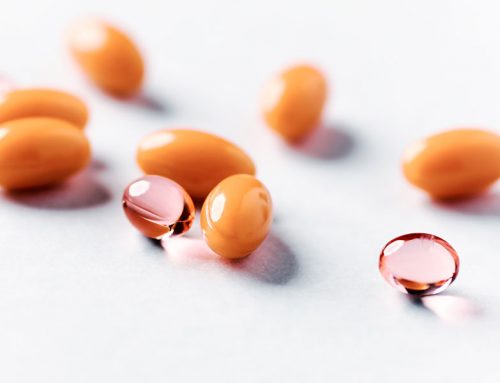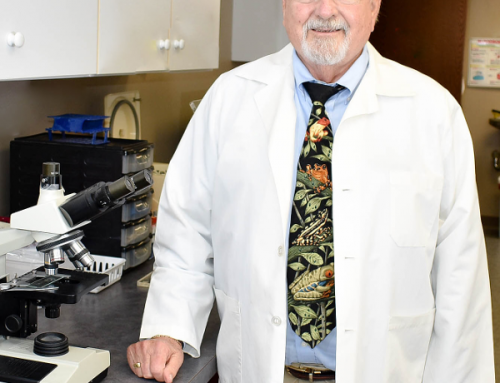
What are we looking for in a Coenzyme Q10 nutritional supplement? We want “full-range documentation” – documentation for good absorption, good response rate, and for health benefits. There is much variation in the formulation and absorption of Coenzyme Q10 supplements. It is best to select one with documented heart health benefits.
What we have been missing until now is a good study comparing the absorption of the more stable ubiquinone Coenzyme Q10 supplements with the absorption of the newer and less stable ubiquinol Coenzyme Q10 supplements head-to-head. Now, the Coenzyme Q10 researchers at the University of Sevilla in Spain have carried out a direct comparison study in which the same study participants have been tested, with appropriate wash-out periods, on both ubiquinone and ubiquinol supplements.
The result: One well-formulated ubiquinone Coenzyme Q10 preparation – the same preparation used in the Q-Symbio study, the KiSel-10 study, and the Gulf War Illness study – has tested out significantly better than the ubiquinol preparation. This particular ubiquinone Coenzyme Q10 supplement had nearly twice the absorption response as did the ubiquinol supplement in the study.
I have just watched a video of Professor Guillermo López-Lluch’s presentation of the results of this comparison study at the International Coenzyme Q10 Association symposium held in Bangkok, Thailand on February 4, 2017. I want to summarize Dr. López-Lluch’s presentation for you.
The Coenzyme Q10 comparison study design in Sevilla
The researchers in Sevilla tested the absorption of each of seven different Coenzyme Q10 preparations, all containing 100 milligrams of Coenzyme Q10, on the same 14 healthy study participants. The study was a single-dose absorption study.
The study participants had a mean age of 26.7 years old (range: 18-30). The study participants were both male and female of varying ages and body weights. All 14 study participants were Caucasians.
The researchers used a rolling double-blind crossover study design with a washout period of at least 4 weeks between the taking of each different supplement. For the testing of each supplement, the researchers had the study participants fast for eight hours. Then the researchers measured the participants’ plasma Coenzyme Q10 levels one hour prior to administering the 100-milligram supplement and serving the participants a standard breakfast.
Following the one-time administration of the supplement, the researchers measured the participants’ plasma Coenzyme Q10 concentrations at 2, 4, 6, 8, 24, and 48 hours.
Advantages of the well-formulated ubiquinone Coenzyme Q10 supplement
The ubiquinone Coenzyme Q10 supplement showed the following statistically significant advantages:
- Greater capacity to put Coenzyme Q10 into the blood as demonstrated by a greater measured 24-hour and 48-hour area under the curve and a greater maximum concentration (Cmax)
- Earlier uptake and detection of absorbed Coenzyme Q10 in the blood following supplementation
- Higher peak concentrations at both 6 hours and 24 hours following supplementation
Ubiquinone Coenzyme Q10 has well-documented health effects
I was not surprised by the results of the Sevilla comparison study. After all, this ubiquinone Coenzyme Q10 preparation must have a good absorption because it has produced significant heart health effects in the well-designed randomized controlled trials named above. Those heart health effects depend upon good absorption of the Coenzyme Q10.
Ubiquinone-ubiquinol debate previously based on mismatched studies
The previous claims that I have seen for ubiquinol have been based on questionable comparisons. For example, there was a widely disseminated claim for ubiquinol supplements based on studies that were done ten years apart. Nothing in the two studies, the ubiquinone study and the ubiquinol study, was the same. Not the researchers, not the study participants, not the dosages, not the measurement techniques.
Formulation of the Coenzyme Q10 supplement enormously important
The superior absorption of the ubiquinone supplement over the ubiquinol supplement is interesting, no doubt about it. What is equally interesting is that there were other ubiquinone supplements in the study that did not test out so well.
In other words, these study results make clear that it is the formulation of the individual ubiquinone supplement that is the most important factor for good absorption. The manufacturer of a well-absorbed ubiquinone supplement must process the Coenzyme Q10 raw material properly to ensure optimal absorption.
Considerable variation in individual response to Coenzyme Q10 supplementation
Interestingly, the Sevilla study has shown that somewhere between 10% and 40% of individuals responded less well to Coenzyme Q10 supplements than the rest of the participants did.
Professor López-Lluch and his colleagues at the University of Sevilla have been studying the reasons for this variability. I want to present some of their thoughts about this issue in a separate article.
The importance of these comparison study results
To my knowledge, this is the first study that compares the absorption of 100 milligrams of ubiquinone Coenzyme Q10 straight up with the absorption of 100 milligrams of ubiquinol Coenzyme Q10 as administered to the same group of study participants and measured and analyzed by the same group of researchers. The results are important and should put a stop to misleading marketing claims for ubiquinol supplements:
- The best-formulated ubiquinone Coenzyme Q10 supplement was absorbed almost twice as well as the ubiquinol Coenzyme Q10 supplement. This result provides thought provoking information about the relative absorption of the two different forms of Coenzyme Q10.
- The best-formulated ubiquinone Coenzyme Q10 supplement was absorbed significantly better than the other ubiquinone Coenzyme Q10 supplements in the study. This result emphasizes once again the importance of the formulation and composition of the Coenzyme Q10 supplement.
What do we know about Coenzyme Q10 supplements?
- Coenzyme Q10 molecules are essential for human life.
- Coenzyme Q10 molecules are needed in the cells for the following biological purposes: cellular energy production, cellular and lipid antioxidant protection, cell membrane protection, endothelial functioning.
- The human cells’ production of Coenzyme Q10 declines with increasing age after the first two decades of life. Making up the difference by eating more is not practical. Coenzyme Q10 supplements are absolutely necessary.
- Absorption (and bio-availability) of Coenzyme Q10 varies enormously with differences in the formulation and composition of the supplements.
- There is a clear association between low plasma and tissue Coenzyme Q10 concentrations and the risk of heart disease [Folkers].
- Adequate levels of cellular Coenzyme Q10, achieved through supplementation, help to prevent the progression of atherosclerosis [Mortensen].
Sources:
Alehagen, U., Johansson, P., Björnstedt, M., Rosén, A., & Dahlström, U. (2013). Cardiovascular mortality and N-terminal-proBNP reduced after combined selenium and coenzyme Q10 supplementation: a 5-year prospective randomized double-blind placebo-controlled trial among elderly Swedish citizens. International Journal of Cardiology, 167(5), 1860-1866.
Alehagen, U., Aaseth, J., & Johansson, P. (2015). Reduced Cardiovascular Mortality 10 Years after Supplementation with Selenium and Coenzyme Q10 for Four Years: Follow-Up Results of a Prospective Randomized Double-Blind Placebo-Controlled Trial in Elderly Citizens. Plos One, 10(12), e0141641.
Folkers, K., Vadhanavikit, S., & Mortensen, S. A. (1985). Biochemical rationale and myocardial tissue data on the effective therapy of cardiomyopathy with coenzyme Q10. Proceedings of The National Academy of Sciences of The United States of America, 82(3), 901-904.
Golomb, B. (2014). Coenzyme Q10 and gulf war illness. Neural Computation, 26(11), 2594-651.
Mortensen, S. A., Rosenfeldt, F., Kumar, A., Dolliner, P., Filipiak, K. J., Pella, D., & Littarru, G. P. (2014). The effect of coenzyme Q10 on morbidity and mortality in chronic heart failure: results from Q-SYMBIO: a randomized double-blind trial. JACC. Heart Failure, 2(6), 641-649.
Disclaimer: The information summarized in this article is not intended for use as medical advice.









Why is there no link to the Sevilla University research source?
Hello Sander —
My understanding is that the study has been submitted to a journal but not yet published.
I too am waiting impatiently to see the journal article and especially the data.
I had imagined that the article would appear some time after Professor Lopez-Lluch made his presentation in Bangkok, but, so far, I have not seen it indexed in the Medline database.
Thank you,
Richard
Hello Sander —
My understanding is that the study has been submitted to a journal but not yet published.
I too am waiting impatiently to see the journal article and especially the data.
I had imagined that the article would appear some time after Professor Lopez-Lluch made his presentation in Bangkok, but, so far, I have not seen it indexed in the Medline database.
Thank you,
Richard
Hi,
Thank you so much for this article.I was wondering if you are aware of the quinone formula that was used that had such great results?
Hi Suzanne –
Yes, here are links to a description of the formulation used in the Q-Symbio study and the KiSel-10 study and several other clinical trials.
http://www.q-symbio.com/can-i-get-the-same-q10-used-in-the-study
http://www.q-symbio.com/what-kind-of-q10-was-used-and-dosage
The preparation should be available on amazon.com.
Thank you for reading.
Richard